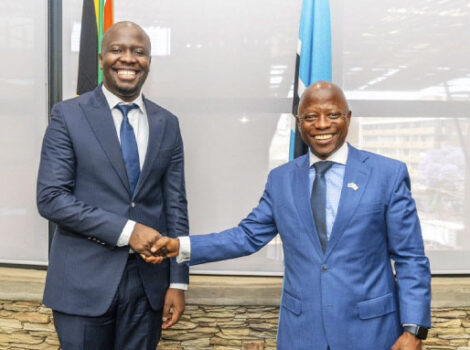
6 December 2024
Cobre Ltd (ASX:CBE) has intersected a broad, 21-metre wide zone of chalcocite-dominant (copper sulphide) mineralisation in drill hole NCP55, about 7.5 kilometres along strike from Comet prospect at the Ngami Copper Project (NCP) in Botswana’s Kalahari Copper Belt.
The drill bit encountered widespread disseminated chalcocite mineralisation from 152 to 165 metres downhole, increasing from an estimated 0.3% chalcocite composition to upward of 3% at the contact with the footwall.
There was also quartz-carbonate vein hosted chalcocite mineralisation from 161.65 to 165.33 metres downhole, increasing from an estimated 2% chalcocite to about 5% at the footwall contact.
Potential for higher grades
Cobre says these results – based on visual estimates supported by portable x-ray fluorescence (pXRF) measurements – demonstrate the continuity of mineralisation along strike, supporting the company’s exploration target of between 103 and 166 million tonnes at 0.38% to 0.46% copper.
According to CBE, these results are an indication of higher-grade mineralisation to the northeast along strike from Comet in a previously untested area.
Adding to the area’s potential prospectivity, the mineralisation in drill hole NCP55 appears to correlate to a deep, dense gravity source in the footwall contact, identified using Airborne Gravity Gradient (AGG) data, which could have played a part in concentrating copper mineralisation in the footwall zone.
A great start
“This is a great start to our recent phase of drilling at NCP, demonstrating the continuity of mineralisation into a previously untested portion of the contact,” Cobre CEO Adam Wooldridge said.
“Not only does this intersection expand on our significant exploration target but highlights the potential for further high-grade mineralisation at NCP.
“Finally, the spatial correlation with the AGG results provides a useful potential future vector for target generation.
“The company now looks forward to the start of infill drilling at the Comet Target designed to bring a portion of the exploration target into category.”



